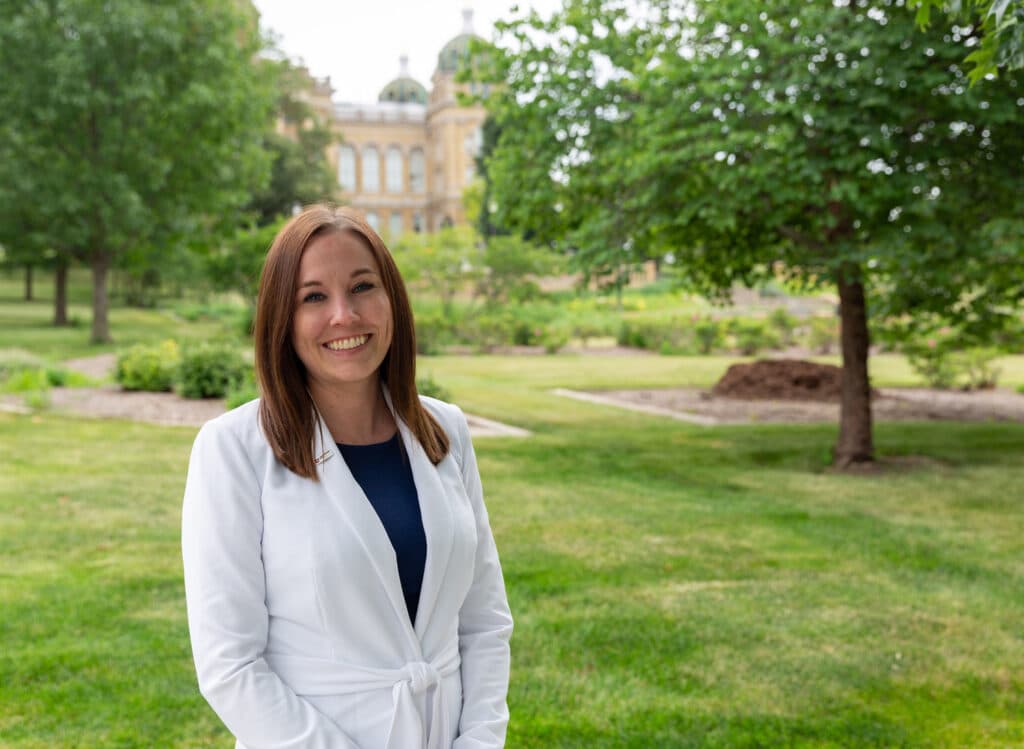NOTEBOOK: The latest on Alzheimer’s

JOE GARDYASZ Jul 18, 2019 | 4:04 pm
2 min read time
567 wordsBusiness Record Insider, The Insider NotebookAt the invitation of Alzheimer’s Association Greater Iowa chapter spokeswoman Courtney Greene, I recently sat in on a lunch and learn hosted by Wellmark to hear the latest news about research studies on Alzheimer’s and dementia. Speaking at the event was Rebecca Edelmayer, director of scientific engagement for the Alzheimer’s Association. The event was the last in a four-part health series at Greater Des Moines corporate sites sponsored by LCS Corp. Edelmayer, who is based out of Chicago, travels around the country to provide updates on the newest treatments and research, much of which is funded through contributions to the nonprofit.
Literally hundreds of research and patient clinical studies are underway that are moving toward earlier identification and treatment of Alzheimer’s, which is thought to be the cause of between 60% and 80% of all cases of dementia. A combination of potential causes, which researchers call “mixed pathology,” makes it more difficult to pinpoint causes of the disease.
It’s something that certainly concerns me at age 57 — as my mother suffered from dementia for more than a decade before she passed away four years ago.
Right now, researchers are making progress in working to identify specific biomarkers that can reliably indicate early on that some may be developing Alzheimer’s, Edelmayer said, similar to how cholesterol buildup is an indicator of heart disease and glucose levels are indicative of diabetes. Ultimately, identifying signs of the disease before there is damage to the brain will enable doctors to prescribe lifestyle interventions (such as better diet and exercise) and medicines for earlier, preventive treatment.
Nearly 300 clinical trials are currently testing different types of lifestyle interventions or drugs and devices, “but we won’t know until we get through Phase III trials whether they’re effective,” she said. Many trials are now entering the Phase III stage, “so you’ll be seeing more coming out in the news about the efficacy of these studies,” Edelmayer said.
More people are always needed to sign on for clinical trials — particularly women, as about two-thirds of the 5.8 million Americans with dementia are women. Also, minorities are woefully underrepresented in clinical trials, she said. A free tool for developing a custom list of possible clinical trials can be accessed on the Alzheimer’s Association website at www.alz.org/trialmatch.
One of the most promising things I heard, and a big takeaway, is that good health habits probably promote good brain health as well. The association has a summary called “10 Ways to Love Your Brain.”
“We know now that what’s good for your heart is good for your brain. And we’re hoping that as we learn more about how even gut health and overall exercise plays a role and that these things really impact our brain as we’re aging,” she said. “I think that research is really going to show us the way, but we still need to conduct rigorous trials to better understand what those best recipes are.”
So when you’re thinking about that quick lunch or whether you’re going to exercise after work, remember that you’re feeding and exercising your brain, too.
“I think some of us forget that our heads are sort of attached to our bodies,” she said. “We’re always exercising to look good or to look good in that suit or dress, but we’re not thinking about the impact on our brains, which is one of the most valuable organs we have.”









